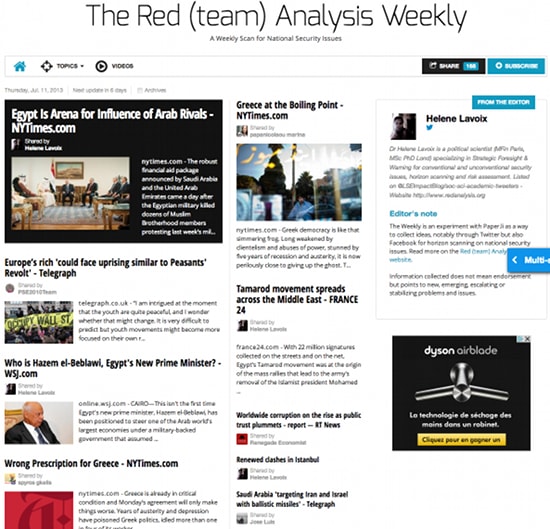A glimpse into the future? As expected last week, the Egyptian events have already started impacting the world. Influence is rising and falling not only within the Arab World but also internationally, with what appears to be an American struggle to make sense of the events and respond adequately and a steadfast Russian foreign policy. Tension also rises with attacks in the Sinai, while a new outlook for the Syrian opposition could well be emerging. Domestically, the Tamarod approach reaches not only Tunisia but also Libya. Meanwhile, on twitter, the connection has started being made between Turkey and Egypt, each side supporting its counterpart in the other country.
Things seem however far from being settled in Egypt, as in the rest of the world. If the choice of El-Beblawi as Prime Minister is to mean also IMF remedies resembling the structural reforms that were applied in the 1980s or more recently what was done to Greece, then the likelihood to see further uprisings and unrest in Egypt would increase. Meanwhile, Greek citizens could very well turn to Egypt as model and reinterpret the Tamarod movement and what followed according to their own needs. The never-ending economic crisis, heightened by rising security issues linked to climate change could also spread unrest to more countries, now that a way forward in agreement with Democratic values has been found. Meanwhile, the religious approach and movements could also be strengthened and radicalized by the same causes.
Click on the image below to read on Paper.Li


